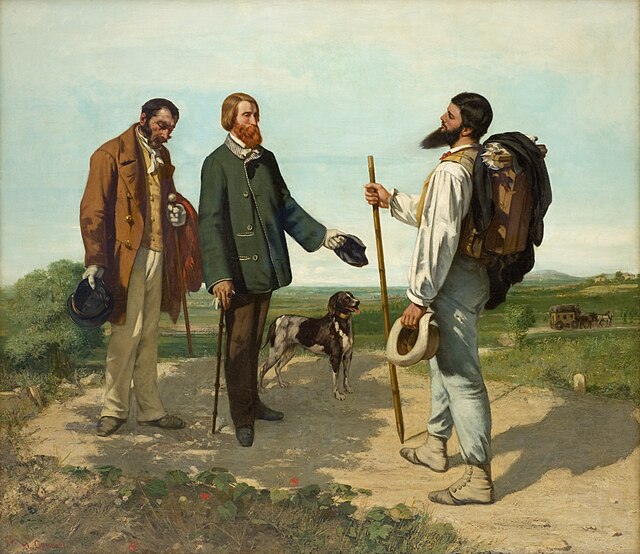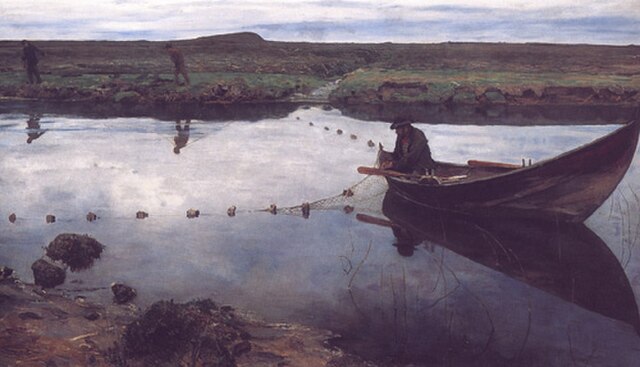William Dean Howells was an American realist novelist, literary critic, and playwright, nicknamed "The Dean of American Letters". He was particularly known for his tenure as editor of The Atlantic Monthly, as well as for the novels The Rise of Silas Lapham and A Traveler from Altruria, and the Christmas story "Christmas Every Day," which was adapted into a 1996 film of the same name.
William Dean Howells
The William Dean Howells House in Cambridge, Massachusetts, was designed by his wife Elinor Mead, and it was occupied by Howells and his family from 1873 to 1878.
Howells circa 1870
Howells in his home office, before 1902
Realism in the arts is generally the attempt to represent subject matter truthfully, without artificiality and avoiding speculative and supernatural elements. The term is often used interchangeably with naturalism, although these terms are not synonymous. Naturalism, as an idea relating to visual representation in Western art, seeks to depict objects with the least possible amount of distortion and is tied to the development of linear perspective and illusionism in Renaissance Europe. Realism, while predicated upon naturalistic representation and a departure from the idealization of earlier academic art, often refers to a specific art historical movement that originated in France in the aftermath of the French Revolution of 1848. With artists like Gustave Courbet capitalizing on the mundane, ugly or sordid, realism was motivated by the renewed interest in the common man and the rise of leftist politics. The realist painters rejected Romanticism, which had come to dominate French literature and art, with roots in the late 18th century.

Bonjour, Monsieur Courbet (1854) – a Realist painting by Gustave Courbet
Francisco Goya, Charles IV of Spain and His Family, 1800–01
Eilif Peterssen, The Salmon Fisher, 1889
Henri Biva, c. 1905–06, Matin à Villeneuve (From Waters Edge), oil on canvas, 151.1 x 125.1 cm








